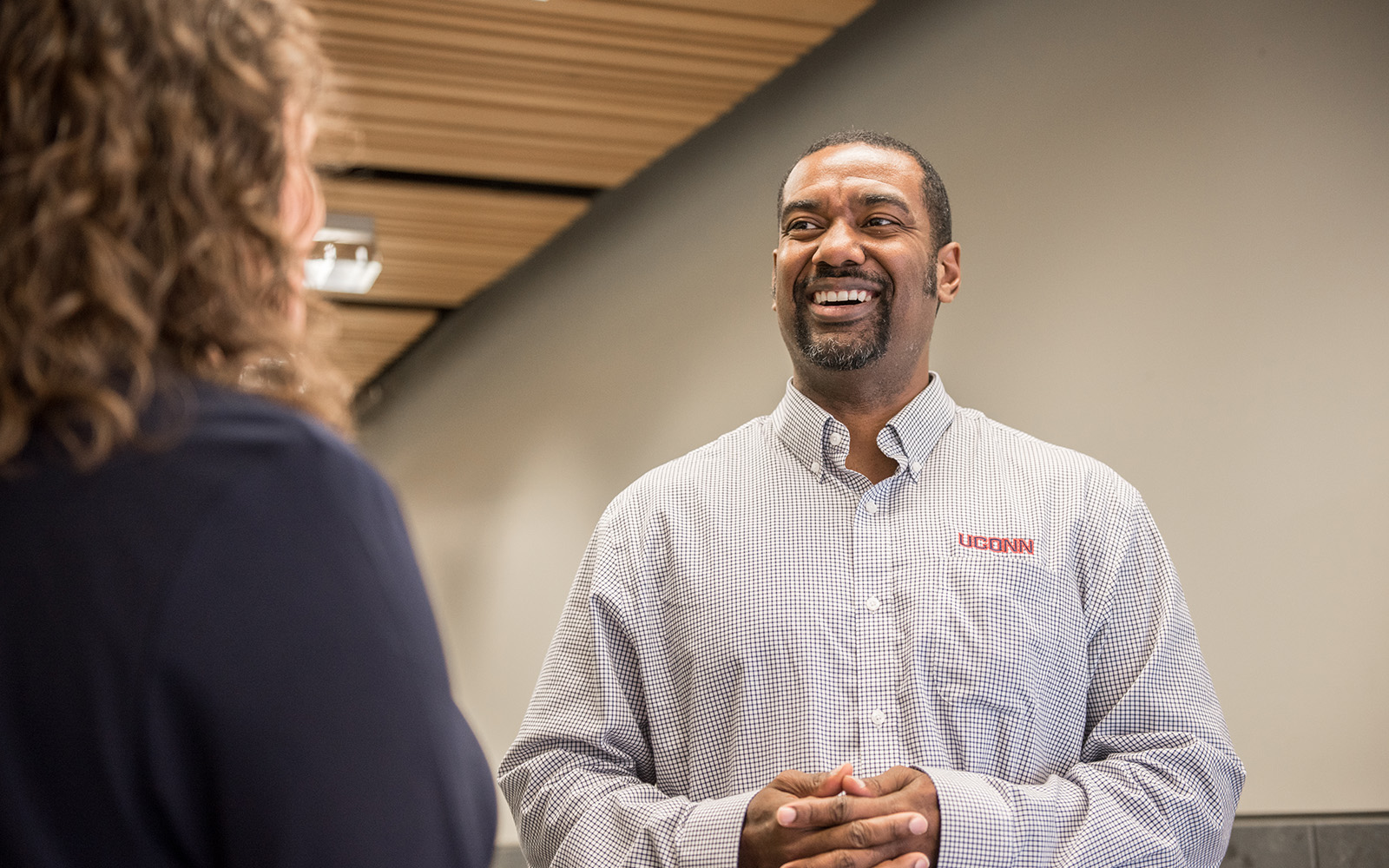Business Law Assistant Professor Stephen Park was awarded the Distinguished Early Career Faculty Award by the Academy of Legal Studies in Business (ALSB) at the 2017 annual conference in Savannah, Georgia in August. Continue Reading
Marketing
New Business Faculty for 2017

Impressive Professors Bring Strong Credentials, Added Zeal to School of Business Ranks
An expert in terror analytics, a marketer who worked for NBC, Pepsi and Disney, and a champion of the volunteer income tax program at UConn are among the newest faculty at the School of Business. Continue Reading
Do Deep Promotional Discounts Work? New Study Sheds Light on Strategy
University of Arkansas – Many retailers employ discounts to attract customers, but it can be difficult for businesses to know what effect these discounts have on overall store performance, and few studies have analyzed store-level data to know for sure whether this strategy works.
Deep Discounts Work for Supermarkets
University at Buffalo – For grocery retailers, the tried-and-true strategy of deep discount promotions is a successful one, according to a new study from the University at Buffalo School of Management.
Puerto Rico’s Debt Dilemma and Pathways Toward Sovereign Solvency
American Business Law Journal, Vol. 54, No. 1, 2017
Puerto Rico, as a quasi-sovereign U.S. territory, is confronting a debt crisis of unparalleled legal complexity. This article analyzes the collective action problems in sovereign debt finance in the context of Puerto Rico’s quasi-sovereign debt dilemma. We examine how sovereign debtors engage with their private creditors in the absence of a formal bankruptcy regime and show how various legal incentives, imperatives, and constraints shape the degree and form of creditor engagement. Drawing on this conceptual framework, this article analyzes the role of these factors in the market-based debt restructuring by the Puerto Rico Electric Power Authority (PREPA) and hypothesizes how these factors may influence the statutory restructuring process underway under the Puerto Rico Oversight, Management, and Economic Stability Act (PROMESA). Despite the idiosyncratic aspects of Puerto Rico’s debt crisis, the potential pathways for debtor-creditor cooperation in Puerto Rico provide valuable insights on the various ways that law influences debtor-creditor cooperation in sovereign debt finance beyond the enforcement of state-based public regulation and contract-based private legal commitments. Full article.
Using Proactive Legal Strategies for Corporate Environmental Sustainability
Berger-Walliser, G., Shrivastava, P., Sulkowski, A. Using Proactive Legal Strategies for Corporate Environmental Sustainability. 6 Michigan Journal of Environmental and Administrative Law, 1-36 (2016). Date Published: June 2017
We argue that proactive law can help organizations be more sustainable. Toward that end, this Article first summarizes proactive law literature as it pertains to corporate sustainability. Next, it examines a series of cases on the pivotal nexus between proactive law and corporate sustainability. It then advances novel propositions that connect proactive law to central organizational design elements. The discussion traces further implications and suggests fruitful avenues for research and ways of using proactive law for firms to become more sustainable. Full article.
From Visualization to Legal Design: A Collaborative and Creative Process
American Business Law Journal, Vol. 54, No. 2, Summer 2017, p. 347-392
Although the law remains predominately focused on the written word, a growing body of scholarship and legal practice reflect a dramatic increase in the use of visualization in virtually every legal context. Three starting assumptions underpin our ideas of implementing visualization ideas and techniques into what we call “Legal Design” that may aid contract simplification:
First, we examine the use of images in business documents and in statutes, rather than for advocacy. Moving away from adversarial settings offers several advantages. It permits us to illustrate the use of images in a broader range of practical legal applications. It also enables us to adopt the thinking, values, and methods of a non-traditional approach to lawyering and the law: “Preventive Law” or “Proactive Law” (combined here as “PPL”). Second, we offer guidelines for using images in conjunction with words rather than in isolation, since the law only rarely abandons its verbal expression. Realistically, visualization is almost always used in hybrid ways — combinations of words and images to enhance the effectiveness of communication. That seems unlikely to change, given the need for detail and refinement when the law is imposing duties on people. Finally, our method analyzes variables surrounding choices and consequences about the process of generating, transmitting, and using images to accompany legal language. Examining this dynamic can deepen our understanding of the information conveyed; it can also reveal the potential of visualization for creating spillover value for businesses or regulatory agencies that employ the images to advance legal and organizational effectiveness. Full article.
Precarious Work: The Need for Flextime Employment Rights and Proposals for Reform
Berkeley Journal of Employment & Labor Law, Vol. 37, Issue 1 (2016)
Turning Corporate Compliance into Competitive Advantage
University of Pennsylvania Journal of Business Law, Vol. 19, No.2 (2017)